Film Review: All Quiet on the Western Front (2022)


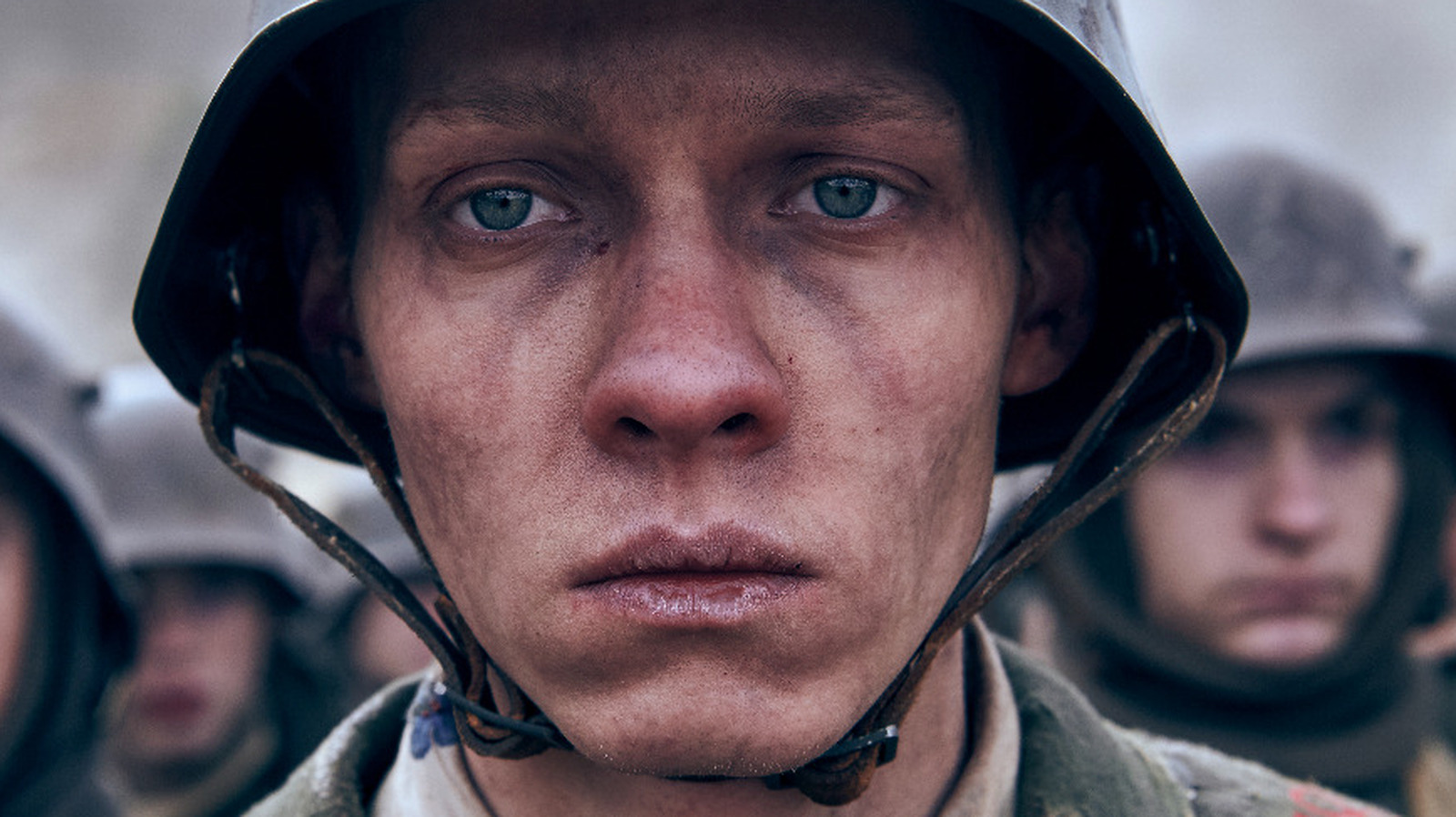
Often, what people remember most about a war film is how uneasy its violence made them feel. Certainly, accurately depicting the realities of war should make anyone uneasy, but the best of these films also haunt in the moments between the violence. With this rare breed of film – those that take the time to ensure that we too feel the coldness of the mud, the agony of loneliness, and the overwhelming fear of death – special attention should be paid to the precious intervals of stillness and silence. It’s in these revealing scenes that we learn the most about war and those pressed into fighting it.
What does a soldier think and do when not forced to kill or be killed? When given a brief period of rest, can a soldier find peace of any kind? Will the soldier ever be able to envision an unspoiled future? All Quiet on the Western Front, director Edward Berger’s adaptation of Erich Maria Remarque’s classic anti-war novel, comes as close to answering these impossible questions as any film I’ve seen – and does so with all the tragedy that implies.
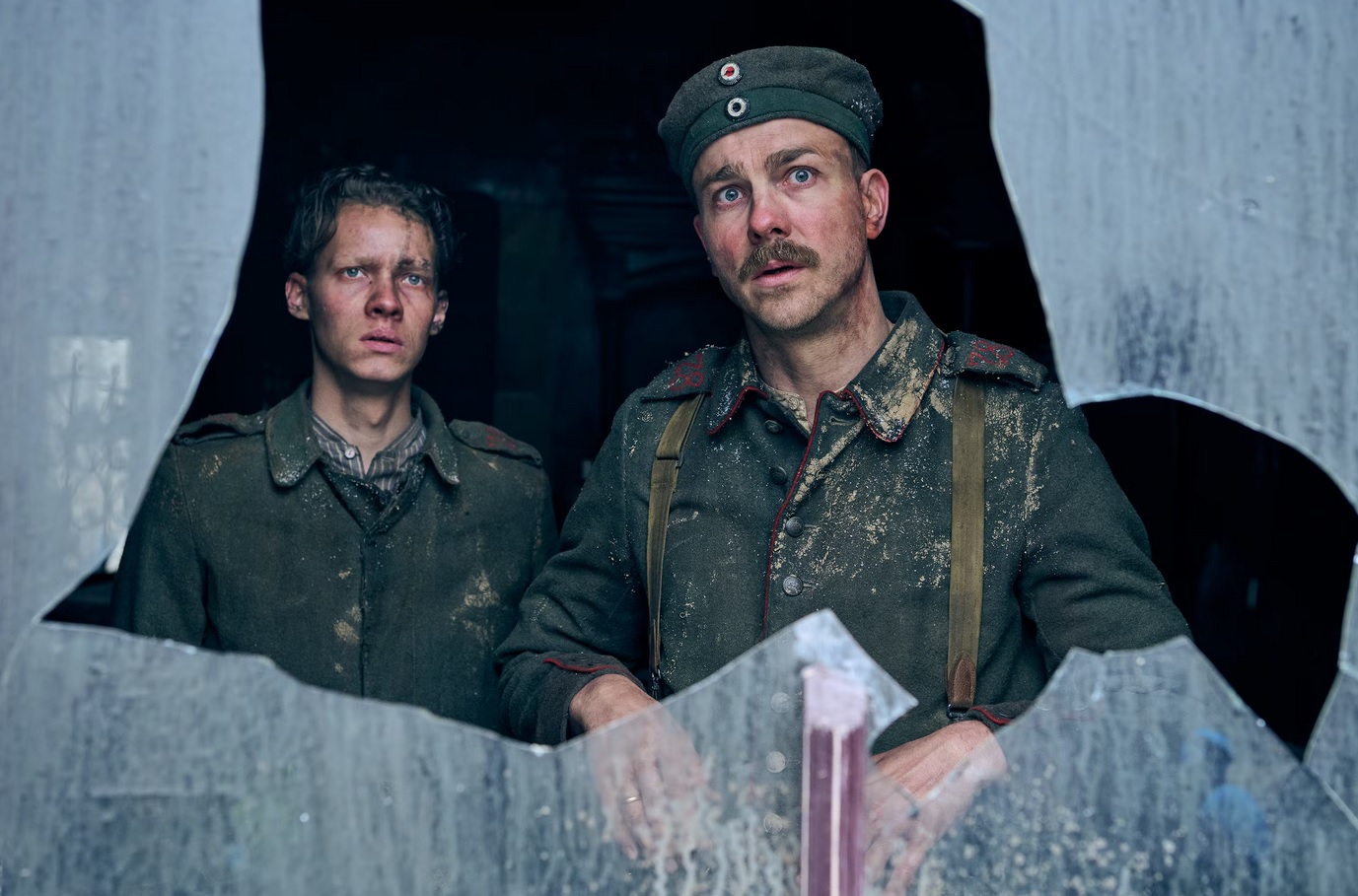
All Quiet on the Western Front begins as a young German soldier is killed in the muck of the Great War. His body is stripped of its uniform and boots, while his corpse is unceremoniously deposited in a mass grave. His clothing makes the long trek back to Germany, where it’s cleaned and repaired before making its way to Paul (Felix Kammerer), a young recruit eager to join the heroic war effort. Unbeknownst to Paul, his friends, or anyone else joining up that day, they are all wearing the uniforms of dead men.
Paul’s fervor for combat is shattered the moment he and his friends arrive at France’s western front. The many promises of heroism made by their smiling recruiters quickly collide with the horrifying realities of trench warfare as Paul and his fellow recruits are put to work in the mud and rain. His first night brings shelling and death, followed by half-buried corpses and shock the next morning. Now an expendable cog in a massive war machine, Paul’s only path to survival is dehumanization and desensitization.
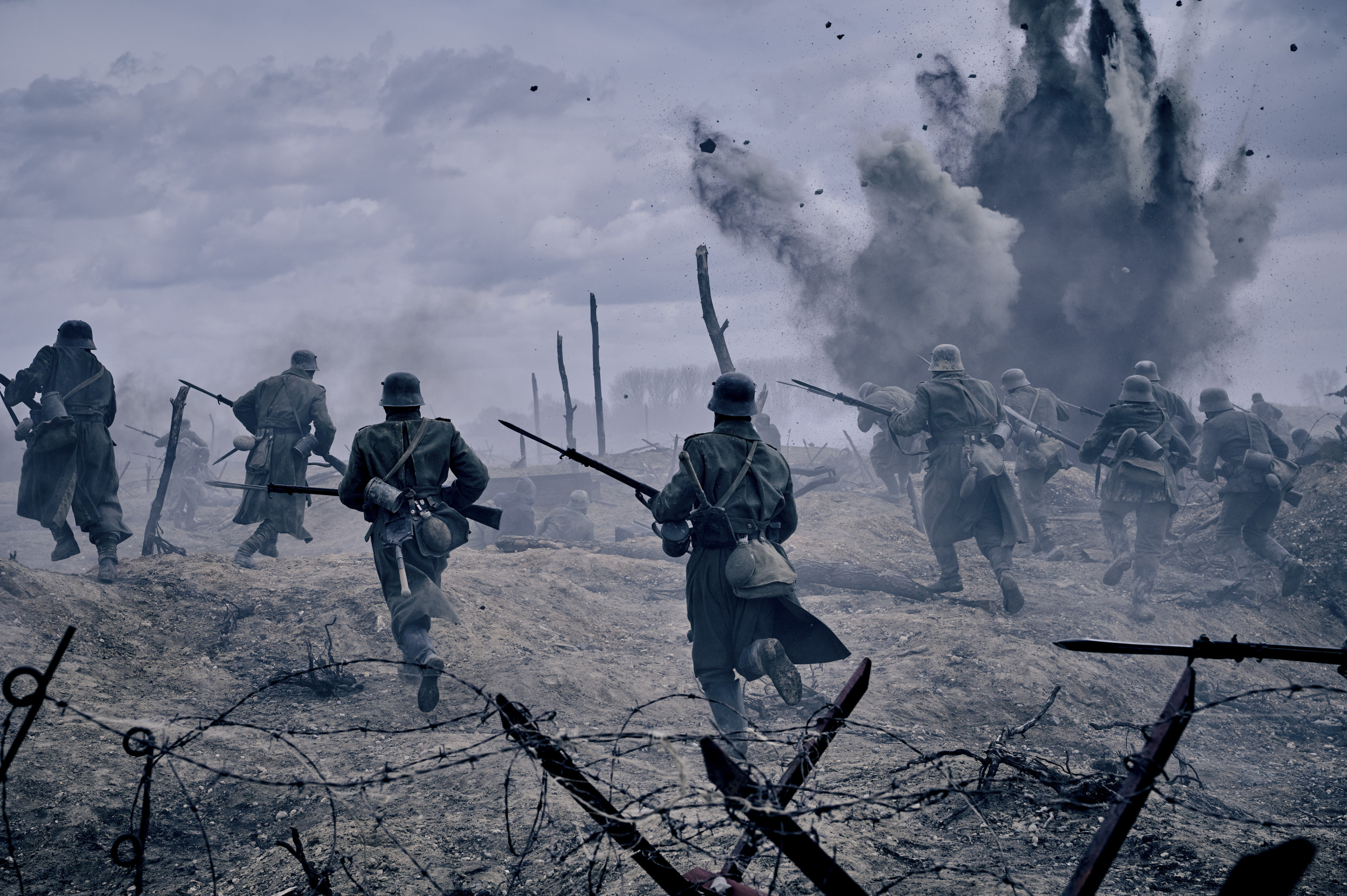
Berger depicts this desolate landscape in a steady wash of drab grays and subdued browns, punctuated by startling bursts of crimson. The joy on Paul’s face on the day he volunteered is gone, replaced with a virtually deadpan and mud-covered expression of hopelessness and terror. His mind has been broken several times, but so have the minds of his friends and adversaries as they kill each other blindly for reasons they no longer understand.
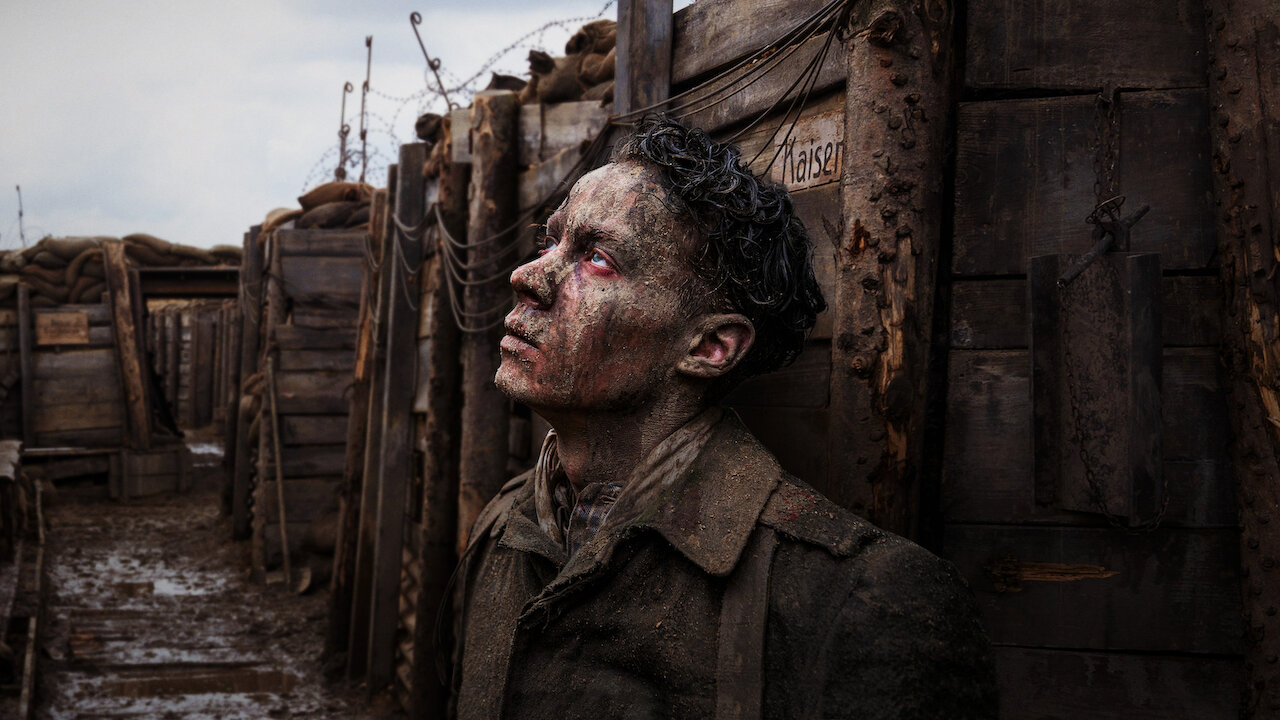
While the German and French officials (Daniel Brühl and Thibault de Montalembert) argue over the terms of an armistice in the Compiègne Forest, Paul and his surviving friends (including an older and more seasoned soldier nicknamed Kat, played by Albrecht Schuch) are thrown into an excruciatingly grim battle involving tanks and flamethrowers. With this, Berger brilliantly combines the infuriating bureaucracy of Stanley Kubrick’s Paths of Glory (1957) and the devastating power of Elem Klimov’s Come and See (1985) – two of the most beautiful and terrifying war films ever made.
Between battles, Paul, Kat, and the others pine for home and discuss the lives they’ll lead after the war is done, but their words ring hollow. Their tired faces betray the optimism they try to exhibit, turning these rare moments of peace into unnerving reminders of what they have to lose, or, perhaps more significantly, what they have already lost.
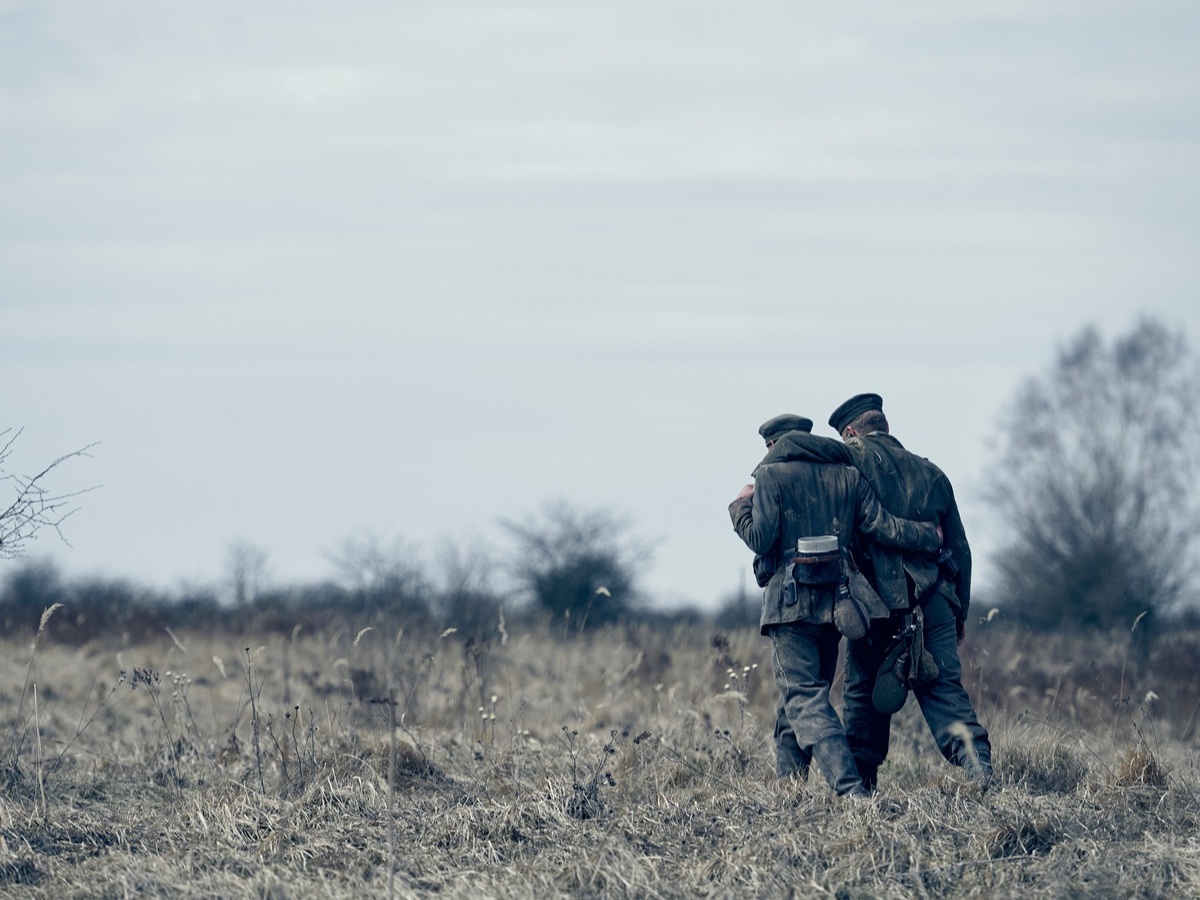
History has recorded exactly when the war will end (on the 11th hour of the 11th day of the 11th month, 1918), but for the soldiers on the front, this knowledge has not yet reached them and perhaps never will. For them, the war goes on until the very last second. With crushing acuity, All Quiet on the Western Front rejects the adulation of success seen in American war pictures in favor of the type of depressing verisimilitude only found in the collective memory of a conquered continent.
